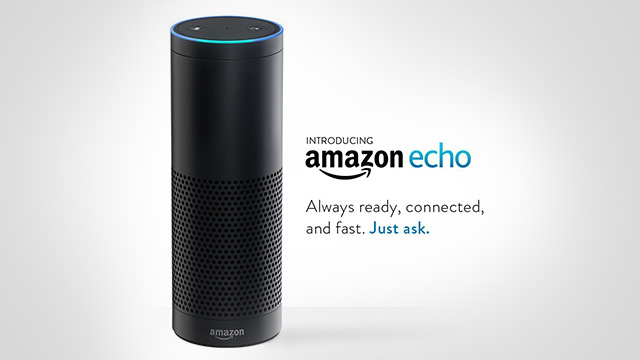A six-year-old girl from Dallas, Texas, became one happy little lady recently after her family’s Amazon Echo, an always-listening speaker device that’s gradually being implemented into thousands of consumer electronic products, responded to a simple voice command she made and ordered her both a tin of shortbread cookies and a large dollhouse — both of which were automatically delivered to the family’s home without so much as the click of a mouse or the press of a touchpad.
Reports indicate that Brooke Neitzel simply spoke to “Alexa,” the Ai-like, voice-command response system built into the Amazon Echo, about her desire for a dollhouse when the machine went ahead and processed an order through the Amazon portal for the products without her family’s permission. Within days, both the dollhouse and the cookies that Brooke casually mentioned out loud to Alexa were sitting on the family’s doorstep, much to the surprise of her parents.
“Alexa ordered me a dollhouse and cookies,” young Brooke gleefully told CBS 11 news when the incident was first reported, prompting other little girls who saw it to do the same exact thing. Within days, many children throughout the country had ordered their own dollhouses through Alexa, revealing not only the exceptional ease with which this increasingly popular tech device can purchase products without people’s permission, but also how clearly and constantly it listens to what people are saying around it.
Amazon says the voice-activated ordering function can easily be disabled or fire-walled using a passcode to prevent such things from occurring. The company also claims that Alexa only starts recording conversations like the one Brooke had when it hears certain keywords. But in order for it to do all this, the Echo via Alexa has to listen to what’s being said in close proximity to it at all times, a function that many are worried makes the Amazon Echo an always-listening spy device.
The Echo “has to listen to everything–that’s kind of disturbing,” says Ryan O’Leary, vice president of WhiteHat Security’s threat research center, which is trying to raise awareness about the full capabilities of Amazon Echo of which many people who use it might not be aware. “It doesn’t capture voice until it hears the keyword, but it could. You’re trusting the devices to not do that, but it’s entirely possible.” (RELATED: Read more news about resisting the surveillance state at Resist.news)
Spying devices to be installed in fridges, stoves, cars, and all sorts of consumer products
At the recent CES tech conference that took place in Las Vegas, LG, Whirlpool, and other consumer product manufacturers unveiled all sorts of new products containing Amazon Echo and “Alexa” technology. These companies are touting Alexa as a convenience factor, though again there are concerns that the use of this technology in everything from refrigerators and stoves to children’s toys and even “smart” walls represents a “Big Brother” threat, the variety of which the world has never seen.
“Connected microphones are starting to appear in everything from cars to children’s toys,” warns James Plouffe, lead solutions architect at mobile security company MobileIron. “Consumers should think carefully about how comfortable they are with the prospect of a live mic in common household items.”
Authorities are already pressing Amazon to release Alexa data from the device of a man who was found dead, floating face-up in a jacuzzi tub at his friend’s house, as part of a murder investigation. Amazon is refusing to release the data, citing “overbroad or otherwise inappropriate demands as a matter of course,” but the implication is still that this private data is accessible, and possibly being stored for indefinite periods of time on private servers, or even on the internet.
Learn more about the abuse of technology to destroy your privacy at Glitch.news.
Sources:



